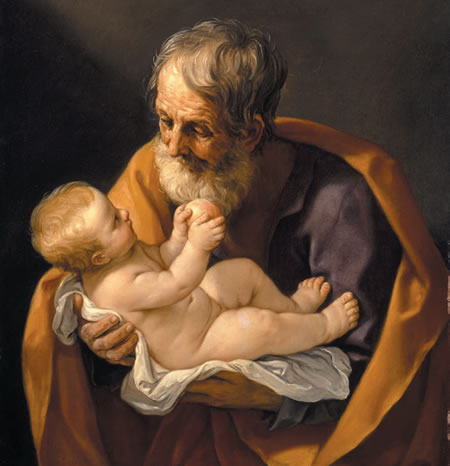
From the Director
And they were bringing children to Him so that He might touch them; but the disciples rebuked them. But when Jesus saw this, He was indignant and said to them, ‘Permit the children to come to Me; do not hinder them; for the kingdom of God belongs to such as these. Truly I say to you, whoever does not receive the kingdom of God like a child will not enter it at all.’ And He took them in his arms and began blessing them, laying His hands on them. (Mark 10: 32-16)
 When I was a seminarian on my first mission assignment in rural Chile, I experienced strong culture shock that caused me to doubt my missionary vocation. I felt that I wasn’t doing enough and couldn’t offer more. I customarily went to the church in the mornings to pray, seeking God’s guidance, while the sounds of school children outside could be heard. One morning, my prayerful contemplation was stirred by the sounds of the church doors opening and then I heard footsteps. A small schoolgirl entered my peripheral vision. Her backpack was almost as big as her and the sight made me chuckle to myself. It was the first feelings of amusement I had in a couple of months. She quietly went to the foot of the altar, crossed herself, and knelt into a small ball on the floor. She remained there for a few moments, then stood up, crossed herself, and left. I marveled at what I witnessed. Her small offering of herself to God was simple but powerful. This experience enlightened me to what I judged as inadequate was enough for God. God didn’t need extravagance but sincere simplicity.
When I was a seminarian on my first mission assignment in rural Chile, I experienced strong culture shock that caused me to doubt my missionary vocation. I felt that I wasn’t doing enough and couldn’t offer more. I customarily went to the church in the mornings to pray, seeking God’s guidance, while the sounds of school children outside could be heard. One morning, my prayerful contemplation was stirred by the sounds of the church doors opening and then I heard footsteps. A small schoolgirl entered my peripheral vision. Her backpack was almost as big as her and the sight made me chuckle to myself. It was the first feelings of amusement I had in a couple of months. She quietly went to the foot of the altar, crossed herself, and knelt into a small ball on the floor. She remained there for a few moments, then stood up, crossed herself, and left. I marveled at what I witnessed. Her small offering of herself to God was simple but powerful. This experience enlightened me to what I judged as inadequate was enough for God. God didn’t need extravagance but sincere simplicity.
Years later as a priest, while I was celebrating a weekday Mass in Santiago de Chile, a homeless man suddenly arrived at the church. As he walked down the main aisle, it was obvious that he was drunk. The small group of people present cautiously watched him. The man silently came to the foot of the altar and knelt on one knee. As I contemplated on what to do, he remained kneeling, waiting as if expecting something. One may ask, what was I thinking as the drunk man knelt at the foot of the altar? Initially, I was worried that he was going to cause a disturbance of some type. Worse, I had no idea if he was dangerous or not. Yet, I knew he would remain there until I did something. In good faith, I paused the Mass and stepped down to where he knelt. The smell of alcohol was strong. I quietly asked him what he wanted. He responded, “A blessing Father.” I complied with his request. He crossed himself, stood up, and quietly left the church. Relieved, I continued with the Mass. After that initial visit, the same man would reappear about once a month and repeat the ritual. As before, I simply paused the Mass, gave him a blessing, and resumed the Mass. Although drunk, he never caused a scene, and always left peacefully.
Later, a spiritual insight illuminated my experience with both the young girl and the drunk homeless man. One might consider the girl’s offering as purer and more innocent. Obviously, her character was never in question. As for the man, one might judge his actions as lacking respect and decorum for interrupting the Mass. Some might question my compliance with his request given his drunken condition. However, I didn’t know what in the man’s history brought him to such a sad state. Obviously, his life was stripped of much human dignity but he retained a small kernel of faith in God. Not even alcohol took that away. Therefore, who was I to deny his only sense of access to God? He had the same right to be at the foot of the altar as the small girl. I concluded that both equally gave to God what little they can offer, a faith like a child.
The Christmas season invites us to have a faith like a child by finding God in the unexpected, such as a newborn child born in a manager. Yes, it is easier to see this image of God in a small schoolgirl praying in church. Yet, Christmas also challenges us to also recognize the same image of God in our broken world such as in a drunk homeless man seeking some acknowledgment of his faith.